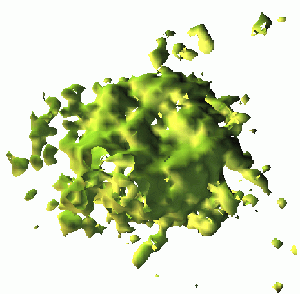A Virtual Toast to Thal, Nitsch, and Stanley on Their Awards
Quick Links
The Alzheimer Research Forum congratulates three esteemed scientists, and occasional contributors to this website, on the awards they won this past week. Leon Thal of the University of California, San Diego, and Roger Nitsch of Zurich University share the $100,000 Potamkin Prize for Research in Pick's, Alzheimer's and Related Diseases, the premier award in the U.S. for clinical or basic research on Alzheimer’s and related dementias. Eugene Stanley, at Boston University, received the prestigious Boltzman Award, which is presented once every three years by the International Union of Pure and Applied Physics.
Leon Thal chairs the department of neurosciences and directs the Alzheimer Disease Research Center at UCSD. In recent years, he has become best known for also leading the Alzheimer’s Disease Cooperative Study, a national consortium of 80 centers which carry out joint clinical trials of experimental therapies in AD. For more information on Thal’s numerous accomplishments in the development of acetylcholinesterase inhibitors, vitamin E, estrogen replacement therapy, as well as many other AD clinical methods and therapy development, see UCSD newsletter.
Roger Nitsch is a professor at Zurich’s Neuro Science Center. He has made numerous contributions to the molecular pathophysiology of AD, including its genetics and markers. His work in creating combined Aβ/tau transgenic mice, and in analyzing the antibody and clinical responses to experimental immunotherapy (see ARF related news story) was widely discussed in the field. The Potamkin award will be presented at the annual meeting of the American Academy of Neurology on April 27, 2004, in San Francisco. For more information about previous Potamkin Prize winners, see .pdf. Last year’s Potamkin prize honored Dave Holtzman and Ashley Bush (see ARF related news story).
A 3D rendered picture of a sequence of confocal microscope images of an amyloid plaque from the human brain tissue. This image originally appeared in Cruz et al., 1997.
Eugene Stanley directs the Center for Polymer Studies at Boston University. The Boltzman award honors outstanding achievement in statistical physics, and the presentation this year will take place this July in Bangalore, India. According to the Institute of Scientific Information, Stanley consistently appears on the list of the world’s most cited physicists. He is known for his work on the understanding of disordered systems, phase transitions, branched polymers, percolation, and aggregation. Alzheimer’s scientists have taken note of his work applying statistical physics to the nature of amyloid aggregation, and attentive investors may have heard about his statistical models of how stock market fluctuations mimic those found in physical phenomena such as earthquakes and network dynamics. The Alzheimer Research Forum has previously summarized some of Stanley’s work in Alzheimer disease (see ARF related news story, ARF news story).…Gabrielle Strobel, adapted from press releases.
References
News Citations
- Finally United? Aβ Found to Influence Tangle Formation
- The Alzheimer's Vaccination Story, Continued
- Neuron Recognition Gone to Potts
- Computer Mathematics Find Plaques Guilty of Toxicity
Paper Citations
- Cruz L, Urbanc B, Buldyrev SV, Christie R, Gómez-Isla T, Havlin S, McNamara M, Stanley HE, Hyman BT. Aggregation and disaggregation of senile plaques in Alzheimer disease. Proc Natl Acad Sci U S A. 1997 Jul 8;94(14):7612-6. PubMed.
Other Citations
External Citations
Further Reading
Papers
- Thal LJ, Grundman M, Berg J, Ernstrom K, Margolin R, Pfeiffer E, Weiner MF, Zamrini E, Thomas RG. Idebenone treatment fails to slow cognitive decline in Alzheimer's disease. Neurology. 2003 Dec 9;61(11):1498-502. PubMed.
- Knowles RB, Wyart C, Buldyrev SV, Cruz L, Urbanc B, Hasselmo ME, Stanley HE, Hyman BT. Plaque-induced neurite abnormalities: implications for disruption of neural networks in Alzheimer's disease. Proc Natl Acad Sci U S A. 1999 Apr 27;96(9):5274-9. PubMed.
- Savaskan NE, Bräuer AU, Nitsch R. Molecular cloning and expression regulation of PRG-3, a new member of the plasticity-related gene family. Eur J Neurosci. 2004 Jan;19(1):212-20. PubMed.
- Singer C, Tractenberg RE, Kaye J, Schafer K, Gamst A, Grundman M, Thomas R, Thal LJ, . A multicenter, placebo-controlled trial of melatonin for sleep disturbance in Alzheimer's disease. Sleep. 2003 Nov 1;26(7):893-901. PubMed.
- Ding F, Borreguero JM, Buldyrey SV, Stanley HE, Dokholyan NV. Mechanism for the alpha-helix to beta-hairpin transition. Proteins. 2003 Nov 1;53(2):220-8. PubMed.
Annotate
To make an annotation you must Login or Register.


Comments
No Available Comments
Make a Comment
To make a comment you must login or register.